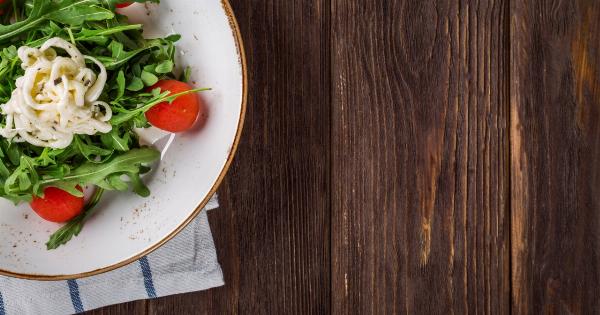Chronic kidney disease is a severe condition that affects millions of people worldwide. It is a condition that damages your kidneys and affects their ability to filter waste from your blood. This disease can progress over time and become life-threatening.
Luckily, there are things you can do to help prevent chronic kidney disease, such as watching your diet and ensuring it is renal-friendly.
What is a Renal-Friendly Diet?
A renal-friendly diet is a diet that is low in sodium, phosphorus, and protein. A diet that is designed to help your kidneys function correctly and prevent complications from chronic kidney disease.
A renal-friendly diet is not only suitable for individuals with kidney disease but is also a healthy and nutritious diet for everyone to follow.
What are the Benefits of a Renal-Friendly Diet?
Following a renal-friendly diet can have many benefits, not only for those with chronic kidney disease but for everyone. Some of the benefits include:.
- Reducing the risk of developing kidney disease
- Preventing kidney stones
- Lowering blood pressure levels
- Improving heart health
- Reducing inflammation in the body
- Increasing energy levels
- Weight loss
What Foods Should You Avoid?
To follow a renal-friendly diet, you will need to avoid or limit certain foods that can be harmful to your kidneys. Some of the foods to avoid include:.
- Foods high in sodium: this includes processed foods, canned goods, and fast food.
- High phosphorus foods: this includes dairy products, nuts, and seeds.
- High protein foods: this includes meat, fish, poultry, and eggs.
- High potassium foods: this includes bananas, oranges, potatoes, and spinach.
- Sugar-sweetened beverages: this includes soda, energy drinks, and sports drinks.
What Foods Should You Eat?
To maintain a renal-friendly diet, you will need to eat foods that are low in sodium, phosphorus, and protein. Some of the recommended foods to eat include:.
- Fruits and vegetables: these are low in sodium, potassium, and phosphorus and are an excellent source of vitamins and minerals.
- Low sodium foods: such as fresh herbs, spices, and low-sodium condiments.
- Whole grains: grains such as brown rice, whole wheat, and barley are an excellent source of fiber and can help lower cholesterol levels.
- Lean meats: such as chicken or fish.
- Egg whites: egg whites contain less protein than egg yolks and can be a good alternative for individuals on a renal-friendly diet.
- Dairy alternatives: such as almond milk, rice milk, or soy milk.
- Healthy fats: such as olive oil, avocado, and nuts.
How to Make Your Diet Renal-Friendly
Adopting a renal-friendly diet may seem challenging at first, but with some simple changes, it can become a part of your everyday routine. Here are some tips to help make your diet renal-friendly:.
- Stick to foods that are fresh rather than processed or canned foods.
- When eating out, look for low-sodium options on the menu.
- Limit high phosphorus foods such as nuts and seeds.
- Use fresh herbs and spices instead of salt to add flavor to your food.
- Choose lean meats such as chicken or fish instead of red meat.
- Replace sugary drinks with water or unsweetened tea.
Conclusion
Adopting a renal-friendly diet can help prevent chronic kidney disease and improve overall health.
By limiting certain foods and consuming nutrient-dense foods instead, you can promote healthy kidney function and reduce the risk of complications from chronic kidney disease. Make sure to consult with your healthcare provider before making any significant changes to your diet.






























